1061 scholarly books by Catholic University of America Press and 49
start with L
1061 scholarly books by Catholic University of America Press and 49
1061 scholarly books by Catholic University of America Press
49 start with L start with L
49 start with L start with L
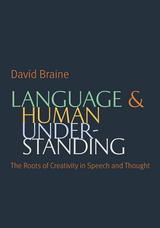
Language and Human Understanding
David Braine
Catholic University of America Press, 2014
Philosopher, psychologist and linguist are all concerned with natural language. Accordingly, in seeking a unified view, Braine draws on insights from all these fields, sifting through the discordant schools of linguists. He concludes that one extended logic or integrated semantic syntax shapes grammar, but without constricting languages to being of one grammatical type.
[more]
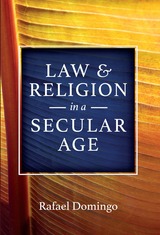
Law and Religion in a Secular Age
Rafael Domingo
Catholic University of America Press, 2023
Law and Religion in a Secular Age seeks to restore the connection between spirituality and justice, religion and law, theology and jurisprudence, and natural law and positive law by building a new bridge suitable for pluralistic societies in the secular age. The author argues for a multidimensional view of reality that includes legal, political, moral, and spiritual dimensions of human nature and society. Each of these dimensions of life needs to recognize the existence, influence, and function of the others, which act as a filter or check on the excesses of each other. This multidimensionality of reality clarifies why no legal theory can fully account for law from the legal dimension alone, just as no moral theory makes perfect sense of morality from the moral dimension—and, for that matter, nothing in physics can fully interpret the physical dimension of reality. The premises of a legal system cannot be fully explained by the legal dimension alone because the fundamental conditions and qualities of justice, freedom, and dignity touch all the dimensions of reality in which the human person acts, including the moral and the spiritual, not just the legal. Building on this multidimensional theory of reality, the author explores the core differences and the essential interconnections between law, morality, religion, and spirituality and some of the legal implications of these connections.
Rafael Domingo reminds readers of the vital role of religion in shaping the conceptual framework of Western legal systems, underscores the spirit of Christianity that inspired legal institutions, principles, and values, and recalls the contributions of specific Christian jurists as central figures for the development of justice in society.
Law and Religion in a Secular Age aims to be a valuable antidote against the dominant legal positivism that has cornered public morality, the defiant secularism that has marginalized religion, and any other legal doctrine that diminishes the spiritual dimension of law and justice.
[more]
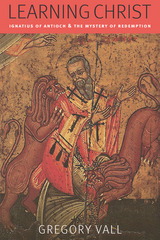
Learning Christ
Gregory Vall
Catholic University of America Press, 2013
Learning Christ represents a thorough reevaluation of Ignatius as author and theologian, demonstrating that his seven authentic letters present a sophisticated and cohesive vision of the economy of redemption. Gregory Vall argues that Ignatiuss thought represents a vital synthesis of Pauline, Johannine, and Matthean perspectives while anticipating important elements of later patristic theology. Topics treated in this volume include Ignatiuss soteriological anthropology, his Christology and nascent Trinitarianism, his nuanced understanding of the relationship between Judaism and Christianity, and his ecclesiology and eschatology.
[more]
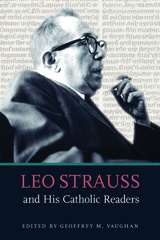
Leo Strauss and His Catholic Readers
Geoffrey M. Vaughan
Catholic University of America Press, 2018
This book looks at the work and influence of Leo Strauss in a variety of ways that will be of interest to readers of political philosophy. It will be of particular interest to Catholics and scholars of other religious traditions. Strauss had a great deal of interaction with his contemporary Catholic scholars, and many of his students or their students teach or have taught at Catholic colleges and universities in America. Leo Strauss and His Catholic Readers brings together work by scholars from two continents, some of whom knew Strauss, one of whom was his student at the University of Chicago. The first section of essays considers Catholic responses to Strauss’s project of recovering Classical natural right as against modern individual rights. Some of the authors suggest that his approach can be a fruitful corrective to an uncritical reception of modern ideas. Nevertheless, most point out that the Catholic cannot accept all of Strauss’s project. The second section deals with areas of overlap between Strauss and Catholics. Some of the chapters explore encounters with his contemporary scholars while others turn to more current concerns. The final section approaches the theological-political question itself, a question central to both Strauss’s work and that of the Catholic intellectual tradition. This section of the book considers the relationship of Strauss’s work to Christianity and Christian commitments at a broader level. Because Christianity does not have an explicit political doctrine, Christians have found themselves as rulers, subjects, and citizens in a variety of political regimes. Leo Strauss’s return to Platonic political philosophy can provide a useful lens through which his Catholic readers can assess what it means for there to be a best regime.
[more]
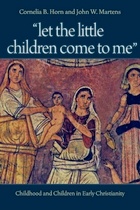
"Let the Little Children Come to Me"
Childhood and Children in Early Christianity"
Cornelia B. Horn
Catholic University of America Press, 2009
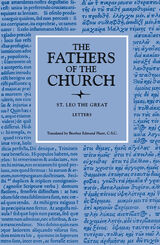
Letters
Saint Leo the Great
Catholic University of America Press, 1957
No description available
[more]
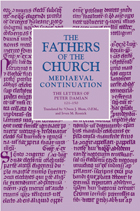
Letters, 121-150
Owen J. Peter Damian
Catholic University of America Press, 2004
No description available
[more]
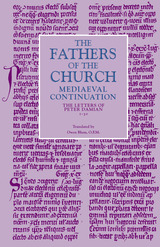
Letters, 1-30
Peter Damian
Catholic University of America Press, 1989
Peter Damian (1007-1072), an eleventh-century monk and man of letters, left a large and significant body of correspondence. Over one hundred and eighty letters have been preserved, principally from Damian's own monastery of Fonte Avellana. Ranging in length from short memoranda to longer monographs, the letters provide a contemporary account of many of the controversies of the eleventh century: purgatory, the Eucharist, clerical marriage and celibacy, immorality, and others. Peter Damian, or "Peter the Sinner" as he often referred to himself, was one of the most learned men of his day, and his letters are filled with both erudition and zeal for reform.
[more]
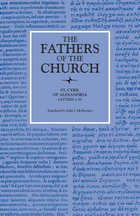
Letters 1–50
Saint Cyril of Alexandria
Catholic University of America Press, 1987
No description available
[more]
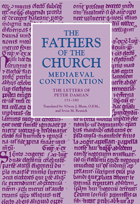
Letters, 151-180
Owen J. Peter Damian
Catholic University of America Press, 2005
No description available
[more]
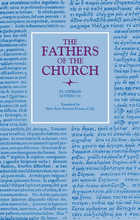
Letters (1–81)
Saint Cyprian
Catholic University of America Press, 1964
The letters, of which eighty-one have come down to us, written from c.249 until his death in 258 A.D., may be found translated in this volume.
[more]
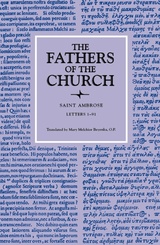
Letters, 1-91
Saint Ambrose
Catholic University of America Press, 1954
The Letters 1-91 of Saint Ambrose.
[more]
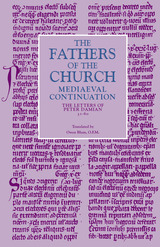
Letters, 31-60
Peter Damian
Catholic University of America Press, 1990
Peter Damian (1007-1072), an eleventh-century monk and man of letters, left a large and significant body of correspondence. Over one hundred and eighty letters have been preserved, principally from Damian's own monastery of Fonte Avellana. Ranging in length from short memoranda to longer monographs, the letters provide a contemporary account of many of the controversies of the eleventh century: purgatory, the Eucharist, clerical marriage and celibacy, immorality, and others. Peter Damian, or "Peter the Sinner" as he often referred to himself, was one of the most learned men of his day, and his letters are filled with both erudition and zeal for reform.
[more]
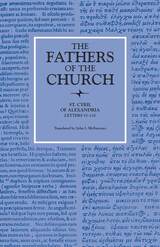
Letters 51–110
Saint Cyril of Alexandria
Catholic University of America Press, 1987
No description available
[more]
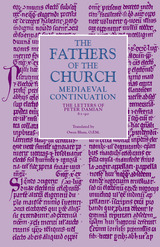
Letters, 61-90
Peter Damian
Catholic University of America Press, 1992
Peter Damian (1007-1072), an eleventh-century monk and man of letters, left a large and significant body of correspondence. Over one hundred and eighty letters have been preserved, principally from Damian's own monastery of Fonte Avellana. Ranging in length from short memoranda to longer monographs, the letters provide a contemporary account of many of the controversies of the eleventh century: purgatory, the Eucharist, clerical marriage and celibacy, immorality, and others. Peter Damian, or "Peter the Sinner" as he often referred to himself, was one of the most learned men of his day, and his letters are filled with both erudition and zeal for reform.
[more]
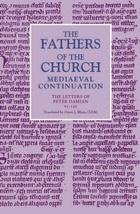
Letters 91-120
Peter Damian
Catholic University of America Press, 1998
No description available
[more]
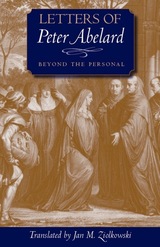
Letters of Peter Abelard, Beyond the Personal
Peter Abelard
Catholic University of America Press, 2008
Comprehensive and learned translation of these texts affords insight into Abelard's thinking over a much longer sweep of time and offers snapshots of the great twelfth-century philosopher and theologian in a variety of contexts.
[more]
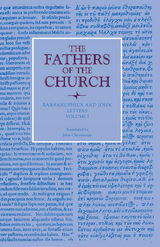
Letters, Volume 1
John Barsanuphius and John
Catholic University of America Press, 2006
No description available
[more]
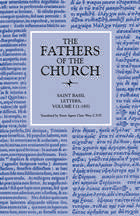
Letters, Volume 1 (1–185)
Saint Basil
Catholic University of America Press, 1951
No description available
[more]
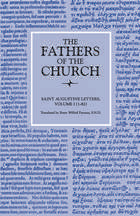
Letters, Volume 1 (1–82)
Saint Augustine
Catholic University of America Press, 1951
No description available
[more]
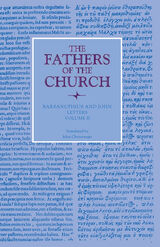
Letters, Volume 2
John Barsanuphius and John
Catholic University of America Press, 2006
No description available
[more]
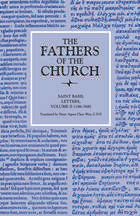
Letters, Volume 2 (186–368)
Saint Basil
Catholic University of America Press, 1955
No description available
[more]
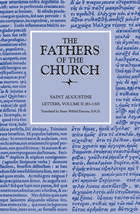
Letters, Volume 2 (83–130)
Saint Augustine
Catholic University of America Press, 1953
No description available
[more]
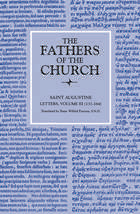
Letters, Volume 3 (131-164)
Saint Augustine
Catholic University of America Press, 1953
No description available
[more]
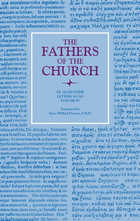
Letters, Volume 4 (165–203)
Saint Augustine
Catholic University of America Press, 1955
No description available
[more]
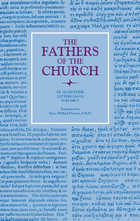
Letters, Volume 5 (204–270)
Saint Augustine
Catholic University of America Press, 1956
No description available
[more]
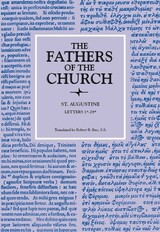
Letters, Volume 6 (1*–29*)
Saint Augustine
Catholic University of America Press, 1989
No description available
[more]
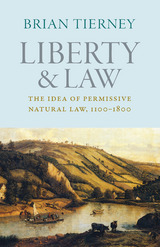
Liberty and Law
Brian Tierney
Catholic University of America Press, 2014
Liberty and Law examines a previously underappreciated theme in legal history - the idea of permissive natural law. The idea is mentioned only peripherally, if at all, in modern histories of natural law. Yet it engaged the attention of jurists, philosophers, and theologians over a long period and formed an integral part of their teachings. This ensured that natural law was not conceived of as merely a set of commands and prohibitions that restricted human conduct, but also as affirming a realm of human freedom, understood as both freedom from subjection and freedom of choice. Freedom can be used in many ways, and throughout the whole period from 1100 to 1800 the idea of permissive natural law was deployed for various purposes in response to different problems that arose. It was frequently invoked to explain the origin of private property and the beginnings of civil government.
[more]
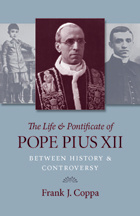
The Life and Pontificate of Pope Pius Xii
Frank Coppa
Catholic University of America Press, 2013
Written by one of the foremost historians of Pius XII, the present biographical study, unlike the greater part of the vast and growing historiography of Pope Pius XII, is a balanced and nonreactive account of his life and times. Its focus is not on the popes silence during the Holocaust, though it does address the issue in a historical and objective framework. This is a biography of the man as well as the pope. It probes the roots of his traditionalism and legalism, his approach to modernity and reformism in Church and society, and the influences behind his policies and actions.
[more]
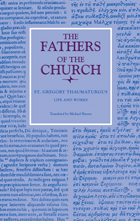
Life and Works
Saint Gregory Thaumaturgus
Catholic University of America Press, 1998
This volume presents the earliest and most important life of Gregory Thaumaturgus, preached by St. Gregory of Nyssa, and all the works that can be attributed to Gregory Thamumaturgus himself. It includes his Address of Thanksgiving to his teacher Origen; his Christian adaptation and interpretation of the Old Testament book of Ecclesiastes; his regulations restoring order in the Christian community after an invasion by the Goths; a remarkable treatise on God's ability to suffer and another on the Trinity; and two small texts that may or may not have been written by him.
[more]
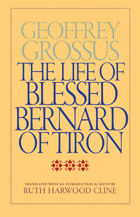
The Life of Blessed Bernard of Tiron
Geoffrey Grossus
Catholic University of America Press, 2009
The first English translation of the Vita Bernardi, this book makes accessible to medieval and religious historians one of the more interesting and lively stories of the twelfth century.
[more]
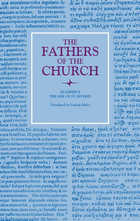
The Life of Saint Severin
Eugippius
Catholic University of America Press, 1965
No description available
[more]
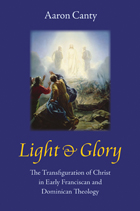
Light and Glory
The Transfiguration of Christ in Early Franciscan and Dominican Theology
Aaron Canty
Catholic University of America Press, 2011
Light and Glory offers an engaging comparison of the teachings of seven thirteenth-century theologians -- three Franciscans and four Dominicans -- on the subject of the transfiguration of Christ.
[more]

Light for the Nations
The Scriptures on the Universal Mission of Israel and the Church
Luis Sanchez-Navarro
Catholic University of America Press, 2024
Universality belongs to the very being of the Catholic Church. This claim of the Gospel is rooted in the ministry of Jesus, witnessed to by the canonical Gospels and the other books of the New Testament, all of which present the universal openness of salvation as a fulfillment of the Scriptures of Israel. In this book, after addressing the universality of salvation in the writings of the Old Covenant, we examine the differentiated and concordant witness of the synoptic Gospels, John and Paul, as well as the Letter to the Hebrews and the Apocalypse. In this way, we intend to show how this apostolic witness responds to the will of the Lord Jesus, while highlighting its harmony with Torah, Prophets and Writings.
Light for the Nations, by reviewing the main biblical passages on the universal dimension of salvation, aims to show how the fact that the Gospel of Jesus Christ has a claim to universality does not diminish, but rather enhances, the importance of the people of the first Covenant: Israel is called to be an active mediator of salvation. The canonical perspective is based on a differentiated exegetical study of each testimony. The scope is broad, since this theme of biblical theology is also relevant for Christology and soteriology, for anthropology and for ecclesiology. The main contribution lies in showing how the various biblical testimonies, in their diversity (which is fully taken into account), offer at the same time a concurring testimony on this fundamental question of Christian theology,
forming a true symphony within its polyphony.
[more]
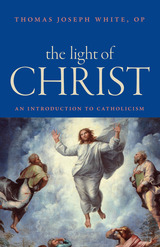
The Light of Christ
An Introduction to Catholicism
Thomas Joseph White, OP
Catholic University of America Press, 2017
The Light of Christ provides an accessible presentation of Catholicism that is grounded in traditional theology, but engaged with a host of contemporary questions or objections. Inspired by the theologies of Iranaeus, Thomas Aquinas and John Henry Newman, and rooted in a post-Vatican II context, Fr. Thomas Joseph White presents major doctrines of the Christian religion in a way that is comprehensible for non-specialists: knowledge of God, the mystery of the Trinity, the Incarnation and the atonement, the sacraments and the moral life, eschatology and prayer.
At the same time, The Light of Christ also addresses topics such as evolution, the modern historical study of Jesus and the Bible, and objections to Catholic moral teaching. Touching on the concerns of contemporary readers, Fr. White examines questions such as whether Christianity is compatible with the findings of the modern sciences, do historical Jesus studies disrupt or confirm the teaching of the faith, and does history confirm the antiquity of Catholic claims.
This book serves as an excellent introduction for young professionals with no specialized background in theology who are interested in learning more about Catholicism, or as an introduction to Catholic theology. It will also serve as a helpful text for theology courses in a university context.
As Fr. White states in the book’s introduction: “This is a book that offers itself as a companion. I do not presume to argue the reader into the truths of the Catholic faith, though I will make arguments. My goal is to make explicit in a few broad strokes the shape of Catholicism. I hope to outline its inherent intelligibility or form as a mystery that is at once visible and invisible, ancient and contemporary, mystical and reasonable.”
At the same time, The Light of Christ also addresses topics such as evolution, the modern historical study of Jesus and the Bible, and objections to Catholic moral teaching. Touching on the concerns of contemporary readers, Fr. White examines questions such as whether Christianity is compatible with the findings of the modern sciences, do historical Jesus studies disrupt or confirm the teaching of the faith, and does history confirm the antiquity of Catholic claims.
This book serves as an excellent introduction for young professionals with no specialized background in theology who are interested in learning more about Catholicism, or as an introduction to Catholic theology. It will also serve as a helpful text for theology courses in a university context.
As Fr. White states in the book’s introduction: “This is a book that offers itself as a companion. I do not presume to argue the reader into the truths of the Catholic faith, though I will make arguments. My goal is to make explicit in a few broad strokes the shape of Catholicism. I hope to outline its inherent intelligibility or form as a mystery that is at once visible and invisible, ancient and contemporary, mystical and reasonable.”
[more]
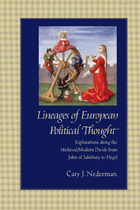
Lineages of European Political Thought
Explorations along the Medieval/Modern Divide from John of Salisbury to Hegel
Cary J. Nederman
Catholic University of America Press, 2009
This book examines some of the salient historiographical and conceptual issues that animate current scholarly debates about the nature of the medieval contribution to modern Western political ideas
[more]
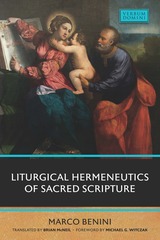
Liturgical Hermeneutics of Sacred Scripture
Marco Benini
Catholic University of America Press, 2023
The purpose of this book is to explore what a liturgical approach to the Bible looks like and what hermeneutical implications this might have: How does the liturgy celebrate, understand, and communicate Scripture? The starting point is Pope Benedict's affirmation that “a faith-filled understanding of sacred Scripture must always refer back to the liturgy” (Verbum Domini 52).
The first part of the book (based on SC 24) provides significant examples to demonstrate: The liturgical order of readings intertextually combines Old Testament and New Testament readings using manifold hermeneutical principles, specifically how the psalms show the wide range of interpretations the liturgy employs. Prayers are biblically inspired and help to appropriate Scripture personally. The hymns convey Scripture in a poetic way. Signs and actions such as foot-washing or the Ephphetha rite enact Scripture. The study considers the Mass, the sacraments and the Liturgy of the Hours.
In the second part, Benini systematically focuses on the various dimensions of liturgical hermeneutics of the Bible, which emerge from the first part. The study reflects the approaches the liturgy offers to Scripture and its liturgical reception. It explores theological aspects such as the unity of the two Testaments in Christ’s paschal mystery or the anamnesis as a central category in both Scripture and liturgy. The liturgy does not understand Scripture primarily as a document of the past, but celebrates it as a current and living “Word of the Lord,” as a medium of encounter with God: Scripture is sacramental.
Liturgical Hermeneutics of Sacred Scripture seeks to contribute not only to the comparison of the Roman, Ambrosian, and Byzantine Rite regarding the Word of God, but most of all to the overall “liturgical approach” to Scripture. As such, it promotes an interdisciplinary dialogue of liturgical and biblical studies.
[more]
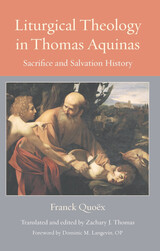
Liturgical Theology in Thomas Aquinas
Sacrifice and Salvation History
Franck Quoex
Catholic University of America Press, 2023
In this volume, Fr. Franck Quoëx responds to Joseph Ratzinger’s call for a renewed appreciation of liturgical rite. A student of Pierre Gy, OP, he brings to this study of Aquinas’s liturgical theology a rare combination of expert knowledge of liturgical sources and history and the best of modern historical-critical research guided by sound theological judgment. Fr. Quoëx frames his study with an overview of the problem of rite in modern theological-anthropological discourse, before turning to Aquinas’ theory of worship in the treatise on the virtue of religion. He then explores Aquinas’ doctrine on the cultic dimensions of the Eucharist and other sacraments in his sacramental theology more broadly, finishing with a close study of the mass commentary of the Tertia Pars.
Although there has been increasing attention to Thomas’s treatment of religion as a virtue, none have approached him from an anthropological angle with a focus on the nature of liturgical rite, or fully exploited the perspectives of liturgical scholarship to shed light on sacramental theology. Quoëx’s work, as the work of a Thomist, liturgist, and medievalist well versed in medieval liturgical development and in the genre of often-allegorical liturgical commentary, opens up this crucial but neglected facet of Aquinas’ theological synthesis. Few books have been published on Aquinas’s liturgical theology. Now that interest in Aquinas’s virtue theory and sacramental theology is growing rapidly, Quoëx’s studies are an invitation to further reflection on the topic of Aquinas’s liturgical theology with its manifold ramifications for and connections with other theological topics in his Summa, including his theological anthropology, his soteriology, his treatment of the Old and New Laws, and his account of the virtue of religion in connection with the other virtues.
[more]
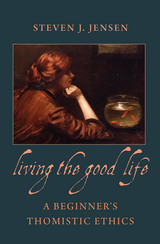
Living the Good Life
Steven J. Jensen
Catholic University of America Press, 2013
Living the Good Life presents a brief introduction to virtue and vice, self-control and weakness, misery and happiness.
[more]
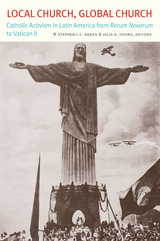
Local Church, Global Church
Stephen J.C. Andes
Catholic University of America Press, 2016
This important volume investigates the many forms of Catholic activism in Latin America between the 1890s and 1962 (from the publication of the papal encyclical Rerum Novarum to the years just prior to the Second Vatican Council). It argues that this period saw a variety of lay and clerical responses to the social changes wrought by industrialization, political upheavals and mass movements, and increasing secularization. Spurred by these local developments as well as by initiatives from the Vatican, and galvanized by national projects of secular state-building, Catholic activists across Latin America developed new ways of organizing in order to effect social and political change within their communities.
[more]
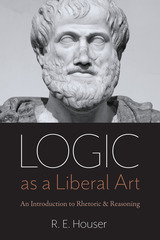
Logic as a Liberal Art
An Introduction to Rhetoric and Reasoning
R. E. Houser
Catholic University of America Press, 2020
In the twenty-first century there are two ways to study logic. The more recent approach is symbolic logic. The history of teaching logic since World War II, however, casts doubt on the idea that symbolic logic is best for a first logic course. Logic as a Liberal Art is designed as part of a minority approach, teaching logic in the "verbal" way, in the student's "natural" language, the approach invented by Aristotle. On utilitarian grounds alone, this "verbal" approach is superior for a first course in logic, for the whole range of students.
For millennia, this "verbal" approach to logic was taught in conjunction with grammar and rhetoric, christened the trivium. The decline in teaching grammar and rhetoric in American secondary schools has led Dr. Rollen Edward Houser to develop this book. The first part treats grammar, rhetoric, and the essential nature of logic. Those teachers who look down upon rhetoric are free, of course, to skip those lessons. The treatment of logic itself follows Aristotle's division of the three acts of the mind (Prior Analytics 1.1). Formal logic is then taken up in Aristotle's order, with Parts on the logic of Terms, Propositions, and Arguments.
The emphasis in Logic as a Liberal Art is on learning logic through doing problems. Consequently, there are more problems in each lesson than would be found, for example, in many textbooks. In addition, a special effort has been made to have easy, medium, and difficult problems in each Problem Set. In this way the problem sets are designed to offer a challenge to all students, from those most in need of a logic course to the very best students.
[more]
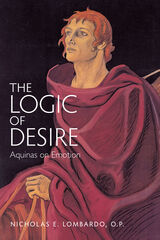
The Logic of Desire
Aquinas on Emotion
Nicholas E. Lombardo, O.P.
Catholic University of America Press, 2011
Focusing on the Summa theologiae, Nicholas Lombardo contributes to the recovery, reconstruction, and critique of Aquinas's account of emotion in dialogue with both the Thomist tradition and contemporary analytic philosophy
[more]
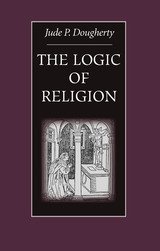
The Logic of Religion
Jude P. Dougherty
Catholic University of America Press, 2003
The Logic of Religion presents an examination of the nature of religion from a philosophical perspective. In successive chapters classical, medieval, and modern authors are canvassed for their views.
[more]
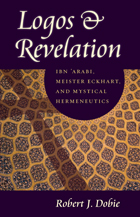
Logos and Revelation
Ibn 'Arabi, Meister Eckhart, and Mystical Hermeneutics
Robert J. Dobie
Catholic University of America Press, 2010
Logos and Revelation looks closely at the writings of two of the most prominent medieval mystical writers: the Muslim, Ibn 'Arabi (1165-1240) and the Christian Meister Eckhart (1260-1328).
[more]
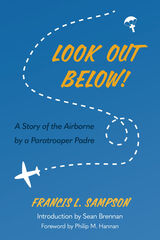
Look Out Below! A Story of the Airborne by a Paratrooper Padre
Francis L. Sampson
Catholic University of America Press, 2023
A veteran of the Second World War and the Korean War, Francis L. Sampson was a real-life hero whose exploits inspired one of the most famous war films of all time, Saving Private Ryan. From rural beginnings in northwestern Iowa, Sampson’s life would take him from the University of Notre Dame to the battlefields of Normandy on D-Day, the ambitious failure of Operation Market Garden, the harshness of a winter as a POW of the Germans during the closing stages of the Second World War, to the fall of North Korean capital Pyongyang in the early stages of the Korean War. Part of the very rare breed of Parachute Chaplains, in his case with the 101 st Airborne Division, Sampson spent much of his career as an army chaplain in the center
of maelstroms of the 20 th century. Throughout it all, Sampson offered a valuable Christian witness in the darkest of times and the most difficult of circumstances.
This second edition of his memoirs, Look Out Below! contains material on his service during the Korean War and occupation duty in Germany and Japan as well as the Second World War, with a new historical introduction by University of Scranton Professor Sean Brennan.
[more]
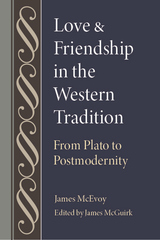
Love and Friendship in the Western Tradition
From Plato to Postmodernity
James McEvoy
Catholic University of America Press, 2023
Love and Friendship in the Western Tradition comprises a collection of essays written over a 25 year period by the late Rev. Professor James McEvoy on the theme of friendship. The book traces the genesis and development of philosophical treatments of friendship from Greek philosophy, through the Middle Ages, to modern and postmodern philosophy. The collection’s three major concerns are: (1) the history of philosophical discussions of friendship; (2) the role of friendship in the cultivation of the philosophical life; (3) the marginalization of friendship as a theme for philosophical reflection and practice in the modern period.
As the author was primarily a medievalist, a great deal of the focus of the essays is on the development of the theme of friendship in the Middle Ages (in the thought of Augustine, Aquinas, Aelred of Rievaulx, Henry of Ghent, Robert Grosseteste, etc.). However, this focus, while a value in itself, also serves to connect philosophical perspectives on friendship from before and after the middle ages. It connects to the time before inasmuch as much of the work done on friendship in the Middle Ages is anchored in interpretations of Aristotle and Plato, and it connects to the time after by providing a counterpoint to the modern paradigm of what constitutes the philosophical life.
The collection combines historical with thematic approaches to scholarship on this issue and is one of the only books of its kind to do so. It is, perhaps, unique in its historical sweep and will prove to be a canonical source for further research on this topic.
[more]

Love Seeking Understanding
Aquinas, Balthasar, and the Renewal of Sapiential Theology
Michael Altenburger
Catholic University of America Press, 2024
As Catholic theology emerged from the crisis of modernity, theologians turned to both patristic and medieval sources to recover lost wisdom from the theological tradition, and adapt it to the challenges of an age that separated reason from faith, the practice of theology from the spiritual life. . In time, Thomas Aquinas and Hans Urs von Balthasar became the patrons of two very different approaches to this challenge. St. Thomas Aquinas offering contemporary theologians an approach rooted in the patristic-medieval Latin synthesis of Augustine and Aristotle that also draws on the East, and von Balthasar offering contemporary theologians a patristic-modern approach rooted in the Eastern theological synthesis of Maximus the Confessor and Erich Przywara, that also draws on the West. Although Aquinas and Balthasar, together with their contemporary followers, sought to unite reason and faith, theology and prayer, contemporary Thomists and Balthasarians have tended to diverge widely from one another, often with a polemical spirit. How should one understand the theological genius of St. Thomas Aquinas and Hans Urs von Balthasar today? How can two of the greatest theologians in the Catholic tradition be brought together in more fruitful and peaceful dialogue?
This edited volume comprises contributions from a range of scholars who elucidate the depth and breadth of two of the most prominent figures of the Catholic tradition today. A scholar from each school of thought contributes an essay on a particular theme: Metaphysics, Trinity, Revelation, Christology, Anthropology, Evil, and Eschatology. By presenting the two essays side by side, this volume provides the contemporary reader with an opportunity to better engage both thinkers and understand disagreements and areas for constructive movement forward. The tone of the volume is intentionally irenic, seeking points of constructive dialogue, and opening new pathways to the renewal of sapiential theology through a fruitful synthesis of Thomistic and Balthasarian thought.
[more]
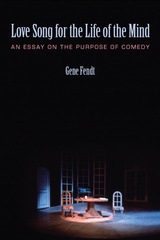
Love Song for the Life of the Mind
An Essay on the Purpose of Comedy
Gene Fendt
Catholic University of America Press, 2007
Love Song for the Life of the Mind develops the view of comedy that, the author argues, would have been set out in Aristotle's missing second book of Poetics. As such it is both a philosophical and a historical argument about Aristotle; and the theory of comedy it elucidates is meant to be trans-historically and trans-culturally accurate.
[more]
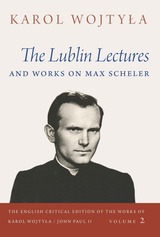
The Lublin Lectures and Works on Max Scheler
Karol Wojtyla
Catholic University of America Press, 2023
The Catholic University of America Press is honored to publish the English Critical Edition of the Works of Karol Wojtyła/John Paul II. Under the auspices of an international editorial board, the English Critical Edition will comprise more than 20 volumes, covering all of John Paul’s writings and correspondence in the years before and during his papacy.
This collection is essential for several reasons. For one thing, gaining access to the saint’s writings has posed a significant challenge. Except for official papal addresses and documents preserved and disseminated by the Vatican, St. John Paul’s works have been scattered and limited. Many documents need a new translation. Finally, English-language audiences have faced the challenge, even in the case of published texts of dealing with several languages, various translations, and textual idiosyncrasies.
The second volume of the series presents Wojtyła’s lectures at the Catholic University of Lublin and his works on Max Scheler. This volume consists of three parts: Karol Wojtyła’s lectures at the Lublin University from 1954 to 1957 (during three academic years); Wojtyła’s articles related to the ethical issues discussed in the Lublin lectures, and his habilitation thesis on Max Scheler from 1953 with other essays related more closely to Scheler’s thought.
As was the case with Volume 1, Volume 2 also relies on the original manuscripts and typescripts of Wojtyła’s works. These original texts were compared with the Polish published editions, and the significant differences between them were marked in the scholarly apparatus. Some of the essays in this volume were never published in English, others were never published before.
[more]
READERS
Browse our collection.
PUBLISHERS
See BiblioVault's publisher services.
STUDENT SERVICES
Files for college accessibility offices.
UChicago Accessibility Resources
home | accessibility | search | about | contact us
BiblioVault ® 2001 - 2024
The University of Chicago Press









